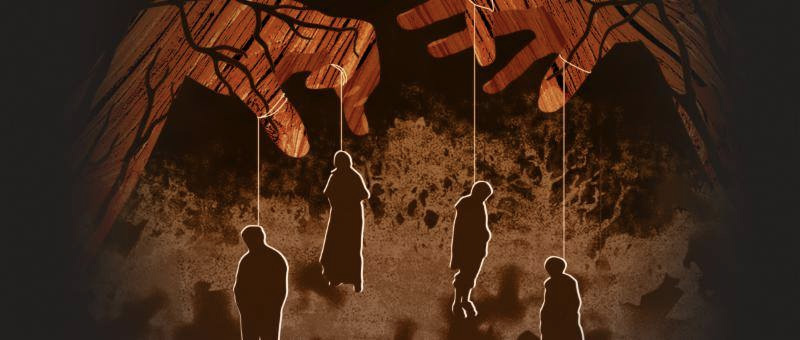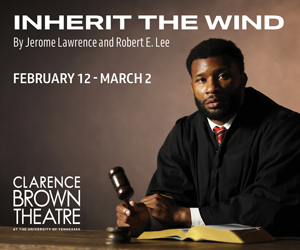University of Tennessee Opera Theatre
Robert Ward’s The Crucible
The Bijou Theatre, 805 S. Gay Street, Downtown Knoxville
Four performances: April 21 – April 23,
Friday and Saturday evenings at 8 PM — Saturday and Sunday matinees at 2:30 PM
Tickets
There is an inevitable interwoven existence between art forms where film scripts, plays, short stories, poems, novels, and television inspire each other in the creation of new works. Eight years after Arthur Miller’s play, The Crucible, hit the Broadway boards at the Martin Beck Theater in 1953, American composer Robert Ward drew upon it for an opera. While basing a new work on a successful one is no guarantee of audience and critical approval, Ward’s The Crucible won both the 1962 Pulitzer Prize for Music and the New York Music Critics Circle Award. The play won the 1953 Tony Award for Best Play.
[The Clarence Brown Theatre performed Arthur Miller’s The Crucible in October, 2016. My review of the production can be found here.]
Ward’s opera was commissioned by the New York City Opera and received its premiere on October 26, 1961, at New York’s City Center Theater.
The story is set in the Massachusetts Bay Colony of 1692, a year in which 142 people in the New England colonies were accused of being witches; twenty of them were hanged. A noteworthy feature of the witch hunt was that the accused could save themselves by accusing others, an act that was supposed to constitute denunciation of Satan. Miller’s play, though, used the Salem Witch Trials as a metaphor for 1950s McCarthyism and the injustices wrought by Senator Joseph McCarthy and the House Un-American Activities Committee. The playwright himself was called before the House Un-American Activities Committee in 1956, and was cited for contempt of Congress when he refused to name names.
Ward’s music is often considered as being descriptively American because of its indigenous use of blues, jazz, dance music as well as New England hymns. In The Crucible, Ward blends lyricism with a 20th Century dissonance, a balance between melody and density that he used to highlight dramatic tension.
The work is particularly popular with university schools of music due to its language and the large number of vocal roles, 21 in all.
The University of Tennessee Opera Theatre production is directed by James Marvel, with the University of Tennessee Opera Orchestra conducted by Kevin Class.






